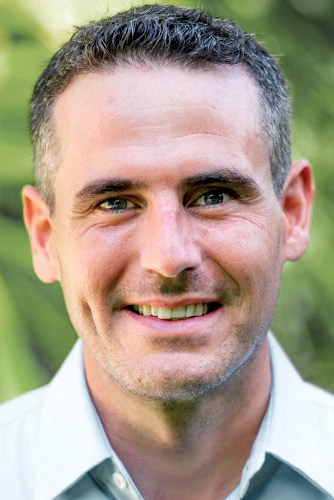

 Next week on 1 July 2020 marks the 30th anniversary of one of the most significant treaty instruments in modern times. On 1 July 1990, the Melbourne Treaty came into force as the first and only global treaty that enabled worldwide internets and mobile networks to exist, together with the cybersecurity provisions designed to protect those infrastructures. The achievement remains as an enduring tribute to Richard Edmund Butler of Australia who was one of the most influential, and best-loved Secretaries-General of the ITU. more
Next week on 1 July 2020 marks the 30th anniversary of one of the most significant treaty instruments in modern times. On 1 July 1990, the Melbourne Treaty came into force as the first and only global treaty that enabled worldwide internets and mobile networks to exist, together with the cybersecurity provisions designed to protect those infrastructures. The achievement remains as an enduring tribute to Richard Edmund Butler of Australia who was one of the most influential, and best-loved Secretaries-General of the ITU. more
 As with other meetings and conferences, the IGF-USA decided to move our annual event to a virtual format held on 22-23 July. We will discuss important matters of the Internet, using the Internet from our secure Internet access points. This format allows us to continue critical dialogue safe from viruses, murder hornets and whatever else is thrown at us this year. more
As with other meetings and conferences, the IGF-USA decided to move our annual event to a virtual format held on 22-23 July. We will discuss important matters of the Internet, using the Internet from our secure Internet access points. This format allows us to continue critical dialogue safe from viruses, murder hornets and whatever else is thrown at us this year. more
 Since Tim Berners-Lee first introduced us to the world wide web, we have seen several major phases of its growth. From the early years -- where researchers and open Internet pioneers led the way; to the dot-com boom; to the era of social media domination; the web has come a long way. While the pandemic circling the globe has undermined many critical systems and institutions of our society, I believe it also has the potential to strengthen is the resolve of the Internet community... more
Since Tim Berners-Lee first introduced us to the world wide web, we have seen several major phases of its growth. From the early years -- where researchers and open Internet pioneers led the way; to the dot-com boom; to the era of social media domination; the web has come a long way. While the pandemic circling the globe has undermined many critical systems and institutions of our society, I believe it also has the potential to strengthen is the resolve of the Internet community... more
 There is an ongoing disagreement among various members and groups in the ICANN community regarding automation -- namely, whether and to what extent automation can be used to disclose registrant data in response to legitimate data disclosure requests. A major contributing factor to the complications around automation has been confusion about how to interpret and apply Article 22 of the GDPR. more
There is an ongoing disagreement among various members and groups in the ICANN community regarding automation -- namely, whether and to what extent automation can be used to disclose registrant data in response to legitimate data disclosure requests. A major contributing factor to the complications around automation has been confusion about how to interpret and apply Article 22 of the GDPR. more
 At NANOG 79 earlier this month Craig Labowitz from Nokia Deepfield presented on the impact on the COVID-19 pandemic on Internet use. The approach to the analysis used real-time streaming telemetry from Communication Service Provider (CSP) backbone and aggregation routers, and the data analysis covered content provider networks in North America, Europe and parts of Asia. more
At NANOG 79 earlier this month Craig Labowitz from Nokia Deepfield presented on the impact on the COVID-19 pandemic on Internet use. The approach to the analysis used real-time streaming telemetry from Communication Service Provider (CSP) backbone and aggregation routers, and the data analysis covered content provider networks in North America, Europe and parts of Asia. more
 I've had a number of people ask me about how I think COVID-19 will impact the ISP industry over the next six months. It's an interesting question to consider because there are both positive and negative trends that ISPs need to be concerned about. The chances are that these various trends will affect markets and ISPs differently - making it that much harder for an individual ISP to understand what they are going to see over the next six months. more
I've had a number of people ask me about how I think COVID-19 will impact the ISP industry over the next six months. It's an interesting question to consider because there are both positive and negative trends that ISPs need to be concerned about. The chances are that these various trends will affect markets and ISPs differently - making it that much harder for an individual ISP to understand what they are going to see over the next six months. more
 I stumbled upon a study conducted by Microsoft eons ago back in the paleolithic era of search; 2012... It is about how "premium domains" are perceived by the consumer when seeing them in the search results compared to a lower value "non-premium" domain. I like to use quotations sparingly, but I felt it was necessary because the varying opinions on premium v non-premium domains is a bridge I do not want to cross in this post. more
I stumbled upon a study conducted by Microsoft eons ago back in the paleolithic era of search; 2012... It is about how "premium domains" are perceived by the consumer when seeing them in the search results compared to a lower value "non-premium" domain. I like to use quotations sparingly, but I felt it was necessary because the varying opinions on premium v non-premium domains is a bridge I do not want to cross in this post. more
 An acquaintance said, "We trust our electronic systems to transfer millions of dollars of value; I suspect we will eventually develop schemes we will trust to record and count votes." Unfortunately, this is one of the chronic fallacies that make voting security experts tear their remaining hair out. The security models are entirely different, so what banks do is completely irrelevant to voting. more
An acquaintance said, "We trust our electronic systems to transfer millions of dollars of value; I suspect we will eventually develop schemes we will trust to record and count votes." Unfortunately, this is one of the chronic fallacies that make voting security experts tear their remaining hair out. The security models are entirely different, so what banks do is completely irrelevant to voting. more
 As a search engine optimization (SEO) and domain name consultant, one of the questions I get asked most often about domain names is whether or not the domain name or TLD (Top-Level Domain) matters. Will the domain name ending have an effect on SEO or search engine rankings. Are certain domain name endings preferred by the search engines over other domain name extensions? I decided to answer this question... more
As a search engine optimization (SEO) and domain name consultant, one of the questions I get asked most often about domain names is whether or not the domain name or TLD (Top-Level Domain) matters. Will the domain name ending have an effect on SEO or search engine rankings. Are certain domain name endings preferred by the search engines over other domain name extensions? I decided to answer this question... more
 Nothing can describe the situation the world is living today more accurately than the current aspect of the Dolores Park in the town of San Francisco (USA). These days the green grass shows an abnormal aspect. A series of white circles span all the ground around. It is not the effect of an extra-terrestrial visit, it is just the consequence of the COVID-19 pandemic: the circles mark the safety areas where families can enjoy the park, socially-distanced, under the Sun. more
Nothing can describe the situation the world is living today more accurately than the current aspect of the Dolores Park in the town of San Francisco (USA). These days the green grass shows an abnormal aspect. A series of white circles span all the ground around. It is not the effect of an extra-terrestrial visit, it is just the consequence of the COVID-19 pandemic: the circles mark the safety areas where families can enjoy the park, socially-distanced, under the Sun. more
 Nokia Deepfield is another company that works in the background on the web, and that analyzes data traffic patterns for the big ISPs. Their June 4 report on web traffic reports about the same thing we're hearing from most large ISPs -- the volume of web traffic suddenly shot up since the onset of the pandemic. Nokia Deepfield says that the increase in traffic has settled in at about a 25% increase over pre-COVID levels. more
Nokia Deepfield is another company that works in the background on the web, and that analyzes data traffic patterns for the big ISPs. Their June 4 report on web traffic reports about the same thing we're hearing from most large ISPs -- the volume of web traffic suddenly shot up since the onset of the pandemic. Nokia Deepfield says that the increase in traffic has settled in at about a 25% increase over pre-COVID levels. more
 A few months ago, there was a lot of discussion that despite its claims, Zoom did not actually offer end-to-end encryption. They're in the process of fixing that, which is good, but that raises a deeper question: why trust their code? (To get ahead of myself, this blog post is not about Zoom.) If Zoom has the key but doesn't abuse it, there isn't a problem, right? Let's fast-forward to when they deploy true end-to-end encryption. Why do we trust their code not to leak the secret key? more
A few months ago, there was a lot of discussion that despite its claims, Zoom did not actually offer end-to-end encryption. They're in the process of fixing that, which is good, but that raises a deeper question: why trust their code? (To get ahead of myself, this blog post is not about Zoom.) If Zoom has the key but doesn't abuse it, there isn't a problem, right? Let's fast-forward to when they deploy true end-to-end encryption. Why do we trust their code not to leak the secret key? more
 How are new technologies adopted in the Internet? What drives adoption? What impedes adoption? These were the questions posed at a panel session at the recent EuroDiG workshop in June. In many ways, this is an uncomfortable question for the Internet, given the Internet's uncontrolled runaway success in its first two decades. The IPv4 Internet was deployed about as quickly as capital, expertise, and resources could be bought to bear on the problem... more
How are new technologies adopted in the Internet? What drives adoption? What impedes adoption? These were the questions posed at a panel session at the recent EuroDiG workshop in June. In many ways, this is an uncomfortable question for the Internet, given the Internet's uncontrolled runaway success in its first two decades. The IPv4 Internet was deployed about as quickly as capital, expertise, and resources could be bought to bear on the problem... more
 Trending news and global events impact domain registration behaviors. We observed a slew of coronavirus-themed domain name registrations, for example, as early as January. George Floyd's death, which sparked several Black Lives Matter movements, is no different. Three days after George Floyd died, our data feed started detecting George Floyd-themed domain names... We retrieved all domain names that contain the strings "eorge," and "lackliv" from 28 May to 7 June and found 402. more
Trending news and global events impact domain registration behaviors. We observed a slew of coronavirus-themed domain name registrations, for example, as early as January. George Floyd's death, which sparked several Black Lives Matter movements, is no different. Three days after George Floyd died, our data feed started detecting George Floyd-themed domain names... We retrieved all domain names that contain the strings "eorge," and "lackliv" from 28 May to 7 June and found 402. more
 The Federal Communications Commission (FCC) has adopted procedures for Phase I of the Rural Digital Opportunity Fund (RDOF) auction, which will award up to $16 billion in support over ten years for the deployment of fixed broadband networks to homes and businesses in census tracks that are unserved by voice and broadband with download speeds of at least 25 Mbps. more
The Federal Communications Commission (FCC) has adopted procedures for Phase I of the Rural Digital Opportunity Fund (RDOF) auction, which will award up to $16 billion in support over ten years for the deployment of fixed broadband networks to homes and businesses in census tracks that are unserved by voice and broadband with download speeds of at least 25 Mbps. more
Sponsored byDNIB.com

Sponsored byCSC

Sponsored byRadix

Sponsored byIPv4.Global

Sponsored byVerisign

Sponsored byWhoisXML API

Sponsored byVerisign
